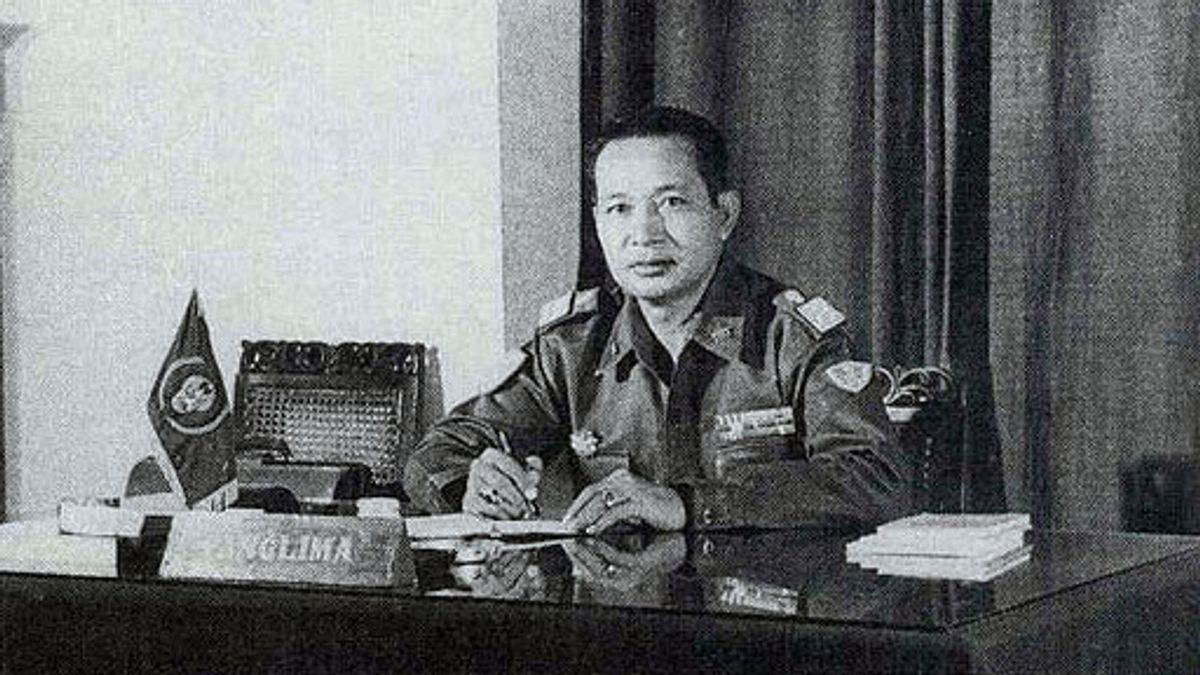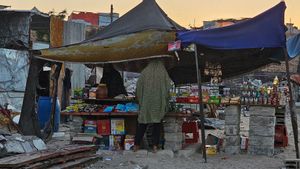JAKARTA - Police officers brutally arrested and then slammed a student who was demonstrating on the sidewalk. TNI personnel help Rachel Venya escape from quarantine. "Some have written that the word 'person' is the most irresponsible word," wrote Seno Gumira Ajidarma.
Since the first the word "person" has often been used to turn a systemic problem into a personal problem for each person. In the New Order (Orba), the police and the TNI had special privileges in the politics of this language.
Looking at the Big Indonesian Dictionary (2001), there are several meanings of the word person. First, the self-declaration of God in Catholicism. Second, one person; individual. And the third, people or elements, in a bad meaning. Seno highlights the third meaning.
Seno said that journalists during the New Order era understood "if there are state instruments, such as the police or military, they make news because they have committed a crime, without having to be asked again they are obliged to write it down as 'police personnel' or 'ABRI elements' and such," wrote Seno in an article entitled Persons in the Politics of Language which aired in Tempo Magazine in 2014.
"It will not be denied that the perpetrators of these crimes are indeed police officers or members of ABRI (now TNI), but the word 'person' is used to underline that the person concerned does not represent the police or the armed forces themselves. In layman's language: not all police are like that, like not all ABRI members are like that."
Although it is not very clear specifically the historical point of the first time "occlusion" was practiced, the politics of this language, according to Seno, peaked in the New Order. The authorities encourage many media to use this semiotic strategy, which is sometimes quite forced. There are even consequences for the media if they fail to embed the word unscrupulous in the reporting of problematic police/TNI.
"The carelessness of embedding the word 'person' in media coverage can invite warnings. Discussions about various cases involving violations of the law by the police and the army are always carried out by emphasizing the word 'person.'"
The politics of language shapes social reality
That's how the politics of language live and thrive in the mass media. He became a representation of the socio-political typology of the audience who became the source of the news. In the context of the New Order, the position of the police/TNI in the hierarchy of power played a major role in preserving corruption.
"Each elite in accordance with its ideology will compile a distinctive dictionary. This dictionary will then be disseminated through the state apparatus, organizations and social institutions," wrote Ekarini Saraswati in the Political Language Engineering of the Old Order and New Order.
One of the language politics that is closely related to the New Order is euphemism or the refinement of the meaning of words that are considered taboo by the public. In the context of the apparatus, apart from personalization, replacing the word "arrest" with "securing" is also one of them.
The use of the wrong euphemism will encourage the growth of society to an incorrect value order. Some state officials tend to use softening expressions to cover up their inability to carry out their duties.
"If it is reported that a corruptor has escaped from prison, then it is said to be due to a procedural error even though he was 'run away' with the intention of avoiding revealing the real facts."
Euphemism is the destruction of language. In terms of information, euphemism is the simplest form of dishonesty information. Its use will prevent us from seeing clearly and sharply.
"We get carried away with avoiding painful facts and becoming unrealistic about reality."
*Read other information about POLITICS or read other interesting articles from Yudhistira Mahabharata.
Other BERNASThe English, Chinese, Japanese, Arabic, and French versions are automatically generated by the AI. So there may still be inaccuracies in translating, please always see Indonesian as our main language. (system supported by DigitalSiber.id)













